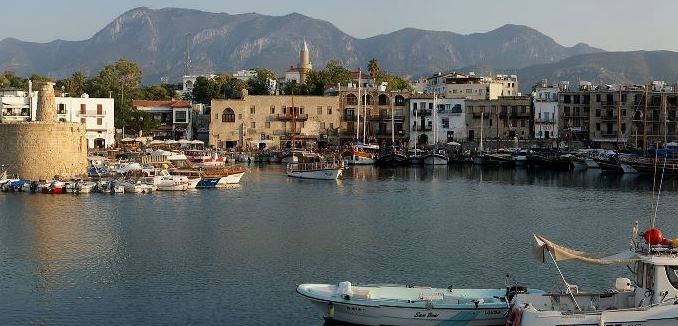A controversial decision by E.U. foreign ministers to cut off projects with Israeli-Jewish communities beyond Israel’s 1948 armistice lines may face additional complications, as legal scholars are pointing to deep contradictions within E.U. practices.
The guidelines regarding those communities have in recent weeks been blasted by top international figures – including former E.U. heads of state – for appearing “discriminatory.” Secretary of State John Kerry has has pressured the E.U. to modify the directives, and Germany has officially distanced itself from them.
Now Northwestern University legal scholar Eugene Kontorovich has outlined a potentially more trenchant problem with the E.U.’s stance on Israeli communities in the West Bank, which is grounded in the E.U.’s position that those communities are build on occupied territory. Bluntly, the ban flatly contradicts the E.U.’s stance on communities in Turkish-occupied Northern Cyprus:
Yet it turns out that despite the guidelines, the EU still knowingly and purposefully provides substantial direct financial assistance to settlements in occupied territory – in Turkish-occupied Northern Cyprus, that is. So the EU funds the occupation of an EU member state. Turkey’s invasion and occupation of Cyprus in 1974 was condemned the UN Security Council, and the EU’s official policy is that the Turkish occupation is illegitimate, and Turkey must completely withdraw. The EU does not recognize the Turkish government in Northern Cyprus.
Nonetheless, the EU maintains an entire separate program to direct funds to Northern Cyprus. … The grants are pursuant to a 2006 regulation adopted by the EU to “end the isolation of the Turkish Cypriot community,” and allocated 259 million euros over five years, and now operates on an annual 28 million euro allocation (a sum that amounts to roughly 0.8 percent of Northern Cyprus[‘s GDP).
Kontorovich observes that the E.U. funds educational institutions and encourages the development of the private sector in Northern Cyprus. The E.U.’s policy is often justified by the Europeans as a way to create institutions and encourage civil society, in preparation for the day when the area is no longer occupied. Diplomats may have difficulty articulating why the same rationale should not hold for, inter alia, factories in the West Bank.
[Photo: Zeki Murad / Wiki Commons]




